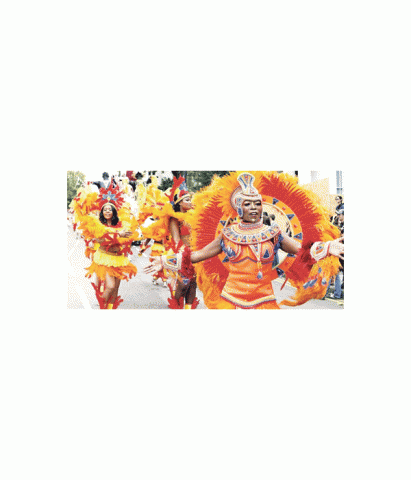
You can't be from the Caribbean and not know about Carnival. It’s one of our many cultural patents, celebrated across our region through different styles which all celebrate the spirit of liveliness, tradition and cultural expression. This week, Youthlink gives a brief summary on the development of Carnival in order to trace the significance of the festival to us as a region.
How it got to the Caribbean
Surprisingly to some, the Carnival we know today is a variation of European religious celebrations. The current festival has undergone centuries of travel, adjustments, reformation and transformation to become the now Caribbean event of revelry. Originally, it was the historical triad of great civilizations – Egypt, Greece and Rome – that held carnival as a pagan festival symbolising the final period of feasting and excess before entering the state of reverence demanded by Lent. European Roman Catholics adopted the tradition and brought it with them to the Caribbean.
Involvement of slaves
Slaves were naturally excluded from the then European celebration; likely contributing to the intensity with which the festival was embraced and reformed after Emancipation. While the masters would hold their demure version of festive celebrations during Easter, the slaves were believed to have secretly imitated the European practices and mixed it with their own customs.
‘The values of freedom and enjoyment are maintained, however, Carnival has also become a place to display creativity in extravagant costumes. It has also become a source of great income for host countries ...’
Major African contributions
Carnival then became a blend of African ceremonial and celebratory elements within the old European framework. The event was seen as symbolic of the end of slavery while still remembering the woes of the system our ancestors escaped. The parading aspect of Carnival is believed to be derived from African customs meant to shun evil spirits. According to Ayiba Magazine’s feature on ‘The African Roots of Carnival’, the wildly creative and extravagant costumes creating excitement every Carnival season also originate from Africa, and the colourful masks adorned with feathers are reflective of the African embodiment of spirits and spiritual strength, practised largely in Igbo, Yoruba, Fon, Ewe, Kongo, and Bantu traditions. Thus the Carnival we still practise today essentially captures much of our assorted ancestral history, from our existence in native African tribes through to European colonisation and to Emancipation.
Modern Carnival
The modern perspective of Carnival continues to celebrate these past values, however, some argue that the festival has shifted to a more raunchy focus. Today’s Carnival goers seem to partake in the event as a show of liberal expression, cultural vibe and pure enjoyment. The values of freedom and enjoyment are maintained, however, Carnival has also become a place to display creativity in extravagant costumes. It has also become a source of great income for host countries, as the festival attracts droves of people looking to have the best time possible through food, alcohol, costumes and music. Carnivals held all over the Caribbean in places like Trinidad and Tobago, Jamaica, Barbados, British Virgin Islands, Anguilla and The Bahamas attract thousands of tourists every year.

